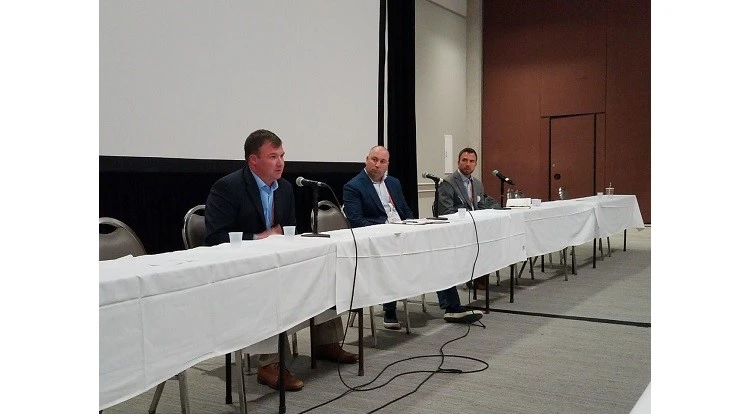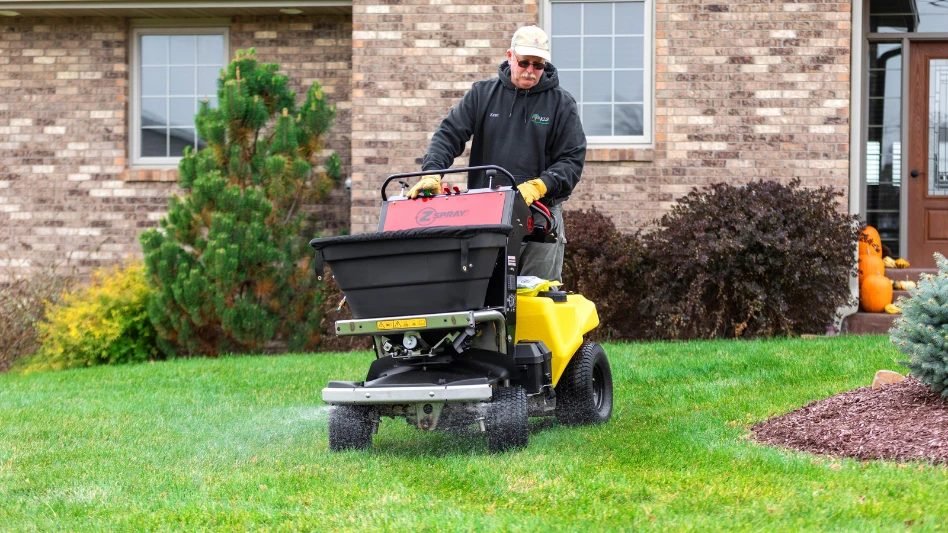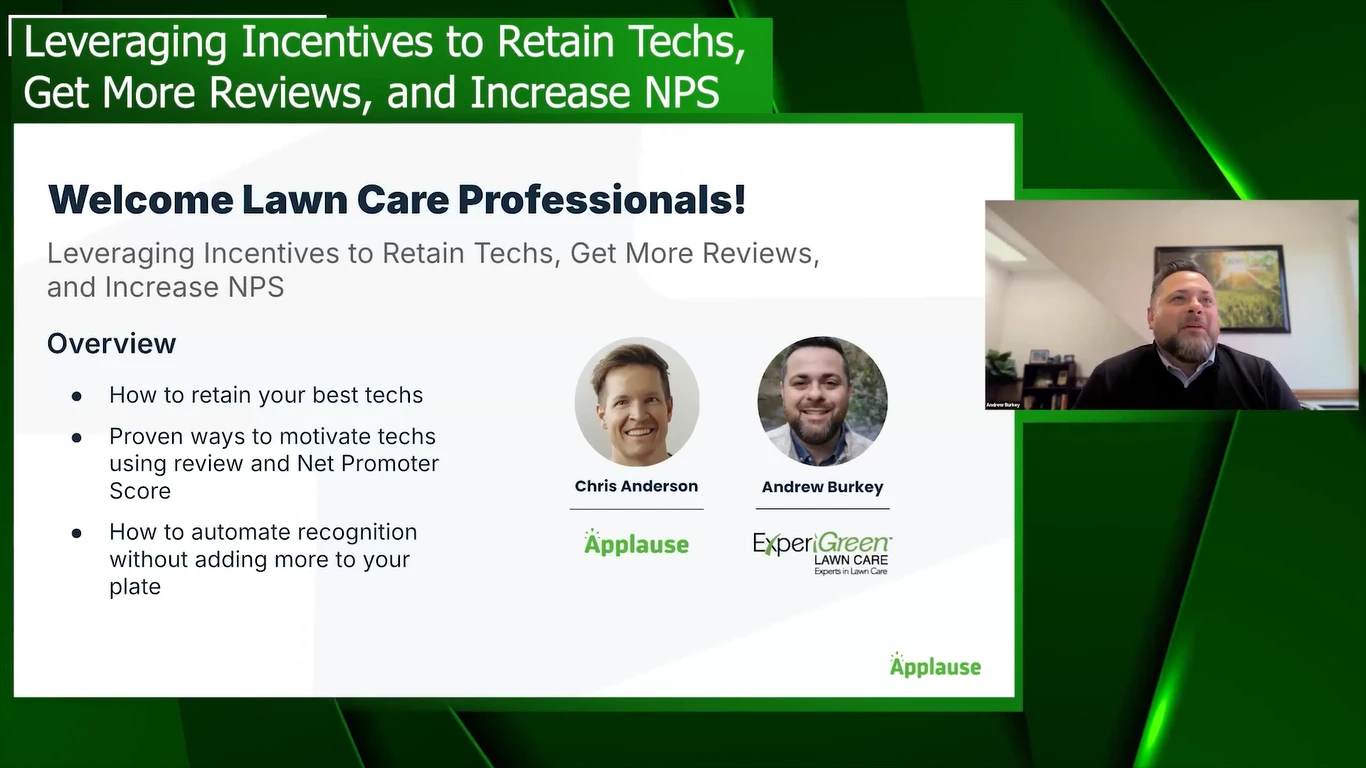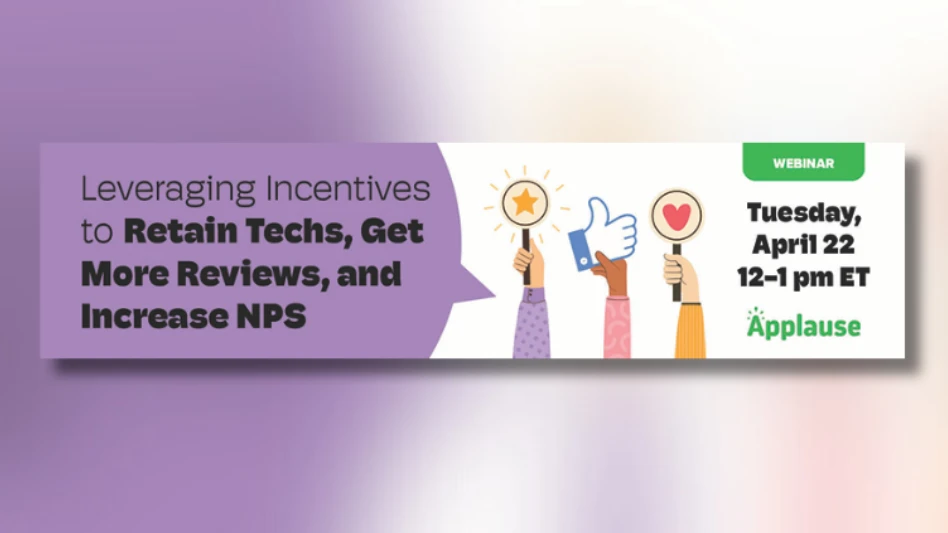
At LANDSCAPES 2019, panelists at a session titled "Keys to Getting Ahead in the Lawn and Landscape Profession" fielded questions on anything from company culture to equipment maintenance. Casey Hurd of Greenscapes Land Care, Mark Maslow of Southern Landscape Group and Bruce Moore Jr. of Eastern Land Management were on the panel.
Here are just a few answers to questions asked by moderator Brett Lemcke from R.M. Landscape. The panelists' responses are paraphrased for clarity.
Q: The value of understanding the “why” was really important in your business? What’s the process and how’s it helped?
Bruce: A few years ago, we were struggling with a lot of collaboration and having valuable meetings. We brought our team together and just focused on why we were doing what we were doing. We have always done a weekly staff/operations meeting, and people were getting less and less interested. A way around that was showing them why it’s important to still have those meetings.
Now, we always talk about the “why” in safety training and onboarding. We’re getting ready to do a snow training session and we’ll kick it off with, “Why are we here?” Well, we had X amount of dollars in property damage and we had this many accidents last winter. This is why we’re doing the training and spending the time to share best practices.
Q: How have you made core values more than just words on a wall?
Mark: Since 2011, we’ve rallied around the mission statement, vision statement and core values we created that year. Now we preach that all the decision-making we do during the day should be driven back to our core values. Our values are quality, teamwork, passion and professionalism. During team meetings, we ask them to bring up examples on how they’ve followed those four values in the last week or so.
If you’re trying to come up with how to develop core values, bring in your team and ask, “What’s important to our clients? What’s important to our team?” Start conversations on each answer somebody has and see where it lands you.
Q: What have you found best works for recruiting and building your team?
Mark: H-2B is a good program, and for us, we’ve also tried to start developing talent with the high school folks. We’re heavily, heavily involved with the schools. We do co-op opportunities during breaks, run after-school programs and teach some in-school lessons. By doing that, it creates a little buzz and interest for them. That recruiting piece in the high school has been important.
Casey: Mark told that story at NALP last year about going into the high schools and I took that away. Since then, I spoke at our local high school and now we have a full-time apprentice. It was pretty neat to hear that idea, take it back and actually use it.
Q: What have been your best tools for building relationships with clients?
Casey: When I started, it was just myself and we still have some of those customers today from 10 years ago. That’s because we still come out and meet with them in person, forging a collaborative relationship where we can make maintenance suggestions and get to know their biggest concerns.
Bruce: We’ve always enjoyed high retention rates and we’ve had a lot of clients who have become friends. We say you should “touch a client” once a week, whether that’s by email, a phone call or meeting them in person. I’ll also follow up quarterly and meet up with them for lunch to take our pulse, see what we can improve upon. They always know that they get me on the phone and they trust that we will run fast to solve their issues.
Mark: We get feedback from them via a survey after every single project. They can rate how we performed and what their experience was like working with us. The results come directly back to me. That’s a good metric that we utilize. We also don’t have our entire relationship with a client rest in one person’s hands, so we have a couple people in the company stay up to speed with the client, solidifying their relationship. You don’t want is all your eggs in one basket and someone leaves, then the client feels like they don’t know you or your company anymore.
Q: And what about some challenges within the asset world. What are you experiencing?
Casey: Without having a full-time shop guy, having constant shop repairs is a problem for us. That’s why our next big hire will be somebody to fill that role. Beyond maintenance, the equipment we buy is always expensive, so financing that can be difficult.
Mark: We had a mechanic and we purposely didn’t replace him to see what prevalent problems we had out in the field. Sure, we lined up some interim help in the meantime, but what we’ve learned is everyone is taking better care of their equipment. Take a pull string for example: Now our crew isn’t yanking on it so hard that it breaks. Before, they knew that somebody would be there to fix it, but now they’re being careful to not break it. As a manger, you should ask yourself if maybe there’s a bigger problem you need to address if your equipment keeps breaking.
Bruce: In terms of preventative maintenance, a lot of our crews work remotely so it provides a challenge because that equipment is not coming through. The equipment is not going to the shop getting greased and washed like we want. So, we put a floating mechanic on the road and they’re going around doing preventative maintenance. He’s also catching things that our satellite crews were afraid to say something needed fixed or replaced because they didn’t want to lose that piece of equipment. We’re being proactive and we’re staying ahead of it.
Latest from Lawn & Landscape
- PERC helps debut propane direct-injection fuel system at ACT Expo 2025
- Retargeting Ads – A Secret Weapon for Growing Your Lawn Care Business
- Leading a growing company
- Project EverGreen launches Clean Air Calculator
- Rain Bird acquires smart lawn care company OtO from Toronto
- PBI-Gordon names Marvin as VP of research and development
- Mean Green rolls out Vanquish Autonomous mower
- Focal Pointe launches new podcast series





